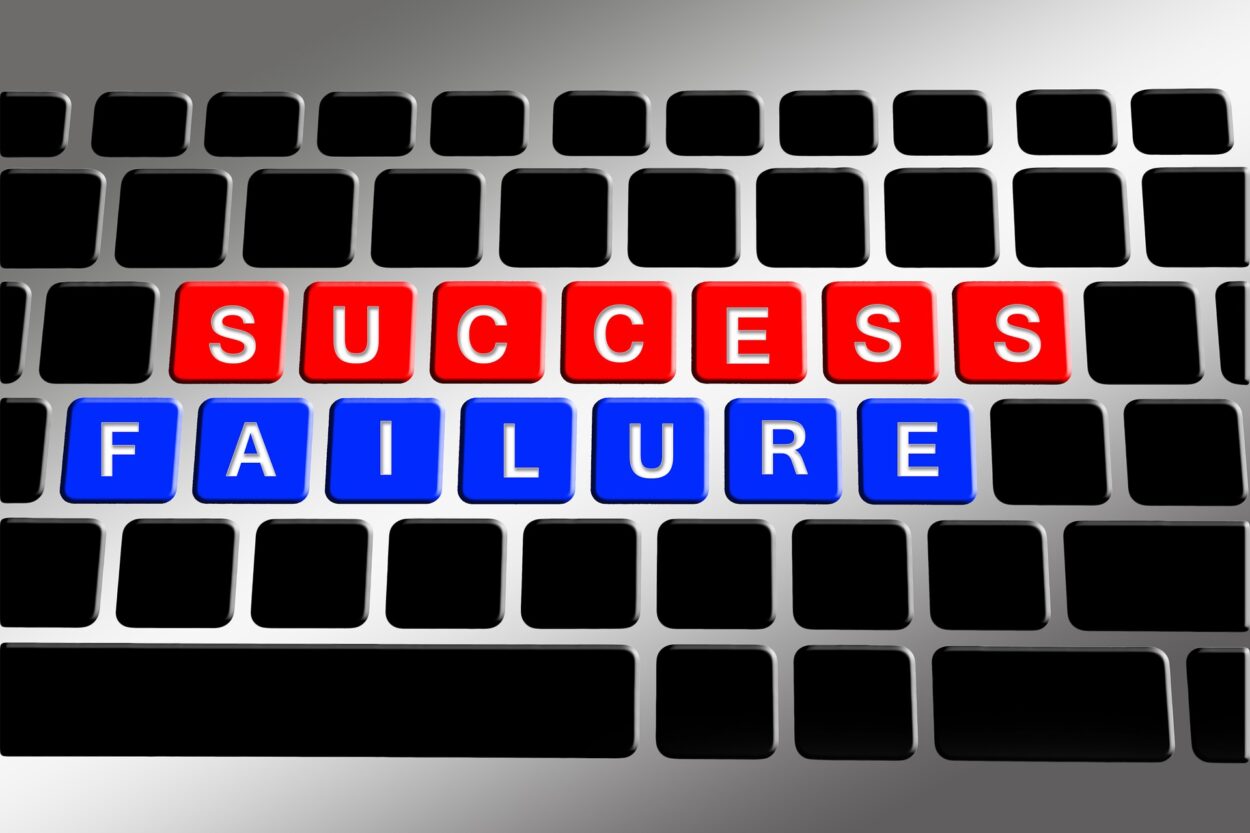
I think that it is patently absurd for people to accept the fact that 90% of start-ups will fail in their first year or two. That number screams that the market for new business formation is not efficient. Economics teaches that markets hate inefficiency and always strive to do better. But this is one statistic that never seems to change.
I have read quite a few books and a lot of articles written by so-called experts dissecting why start-ups fail and how to make them succeed. Much of it is nonsense.
There are really only three primary reasons why a new business will fail; 1) the owner lacks basic business acumen; 2) the business is under-capitalized and 3) the business misread the market. All can and should be avoided if the entrepreneur knows what he/she is doing. Usually lack of experience and the ability to run the business profitably is what leads to the failure. There are a lot of would-be entrepreneurs who do not know what a successful business looks like or how to run one.
It is hard to find an article that discourages entrepreneurs and entrepreneurship. But some people need to be discouraged because they do not have what it takes. Fortunately, most of those people could learn what they need to know even though most will not.
Economics
When I was teaching economics I used the example of a restaurant, specifically a small pizza parlor, as a way of demonstrating how profitable a restaurant or any business can be. Of all start-ups, restaurants often top the list of those that fail most often and more quickly than other businesses. That should not be.
In the example, the restaurant’s owner stops on his way to work to buy the ingredients that he needs, flour, cheese, tomato paste, pepperoni, etc. to make the pizzas. If he opens his shop at 11AM, he can convert all of those ingredients into pizzas and back into cash, at a healthy mark-up, by the time he closes that evening. That type of rapid inventory turn-over is almost impossible to get in any other business.

Customers at a pizza parlor are not expecting table cloths and fancy décor so overhead can be kept to a minimum. Since the pizzas come out of the oven one or two at a time, the wait staff can handle more tables than the staff at other restaurants. They may use paper plates and paper cups eliminating the cost of a dishwasher. In most cases, advertising can be done cheaply with signage, flyers and coupons.
Couple that with the fact that the other product the restaurant sells, fountain soft drinks, has a huge mark-up and you can see why a small pizza restaurant can make a lot of money. If he owner is really smart, he will add a soft serve ice cream dispenser as well because it also has a very high mark-up and will substantially increase the total amount of sales and profit per customer.
The further away the restaurant gets from this simple model, the greater the chance that it will fail. Nothing about this discussion has a lot to do with the pizza or how good it is. It is all about the numbers, especially money in and out; how to maximize the former and minimize the latter.
The problem with most people who start a restaurant is that they plan the menu around what they want to serve or what they think they need to serve to attract customers, not on how much money they will make. Likewise, most start-ups focus on their product. But they also need to keep their eyes on the numbers. That is where start-ups succeed or fail.
The real lesson here for any business and especially start-ups is that what you are doing is a business. To make it work you need to be focused on the bottom line. If you cannot operate the business at a profit, it cannot succeed. So why do 90% of start-ups fail: because their expenses are greater than their income.
When someone asks me what I consider to be essential for any new business, I always include an adequate bookkeeping system so the business owner can easily keep track of cash flow, inventory turn-over, etc. It is very difficult to find that suggestion on the list of start-up essentials in any of the hundreds of articles on the subject in Inc. or Entrepreneur Magazine.

The best advice for any start-up would be to “work smart and spend your time and your money wisely”. That is especially true if you are looking for investors. Investors are expecting you to make money and they are expecting that you have what it takes to run a business and that you know what you are doing.
There are still thousands of articles about how to pitch VCs for funding. Over all VCs fund very few companies each year and many thousands of entrepreneurs are trying to get their attention because that is what the articles tell them to do. Pitching to VCs may be the single biggest waste of time and money that any start-up does, especially so if you have to get on an airplane to make your pitch.
On the other hand, boot strapping can be very hard and the lack of cash can hold you back, delay your progress and cause you to fail just when you were beginning to succeed. It is a lot easier to focus on your business when there is money in the bank to pay the bills.
Being able to raise seed capital so that you can focus and move forward is also an indication of other people’s evaluation of you and what you are attempting to do. Feedback from potential investors on your seed round is important. Comments and suggestions, especially negative ones, will help you move forward.
Fund raising for start-ups has become remarkably easy with the JOBS Act and equity crowdfunding. There is a lot of money available. It works for most start-ups because they can control the process and make it work. I started walking companies through the process 3 years ago. Feel free to contact me if you are considering raising capital through crowdfunding or are raising capital and never considered crowdfunding.
A start-up is not a start-up until it starts-up. Every business begins when it makes its first sale. It is a lot more difficult to raise funds for a pre-revenue company versus one which has a product already being sold. Pre-revenue you need a great business plan and a team to carry out your plan. A good idea for a new business is important but execution is everything.
Given that financing a pre-revenue company is difficult, no one should plan on doing it twice; once to build your prototype product and again to launch it. So an article that suggests that should raise money to create a MVP (minimum viable prototype) and then again to take it to market is not really not helpful. If you are going to raise seed capital to get your company off the ground, you should raise enough to get your product into the market, sustain your company until it is profitable, cover the costs of raising more money to help it grow and usually a small reserve in case things do not go exactly to plan.
There seems to be another stream of start-up gospel that suggests if you want to succeed you need to disrupt the market or solve a problem that nags the market. It is vitally important that you understand your market but you do not have to disrupt anything.
Nothing about the pizza parlor solves any specific problems that cannot already be solved in the marketplace. There is no new technology; no bells and whistles; no Blockchain. While in a competitive market like New York City everyone knows a good slice from a not so good slice, I have waited on line at pizza parlors in small college towns around the US for some really mediocre pizza.
I look at a lot of pitch decks and I speak with a lot of entrepreneurs. Sometimes I can tell that the person just does not have what it takes to operate a successful business. When that happens, I usually ask a lot of questions. How will the business operate post-launch? What are the sales goals month to month and where will the sales come from? Where is your break-even point?
From day-one, the focus needs to be not on just starting up but staying open. The reason that 90% of start-ups fail is a lack of execution by the founders. If every entrepreneur focused on running the business well, that number would plummet.
If you are thinking about opening your own business, take a moment to have a slice a pizza and consider why that pizza parlor is successful. Do that for fifty businesses. Look at what they are doing right and what you would do better. Quantify how much more money the business would make if they did things your way.
Once you can analyze what makes other businesses successful, you will on the road to making your own business successful as well. Sadly, the vast majority of people who are considering their own start-up would fail at this exercise. That, more than anything is why the 90% failure rate for start-ups is with us year after year.
If you’d like to discuss this or anything related, then please contact me directly HERE
Or you can book a time to talk with me HERE